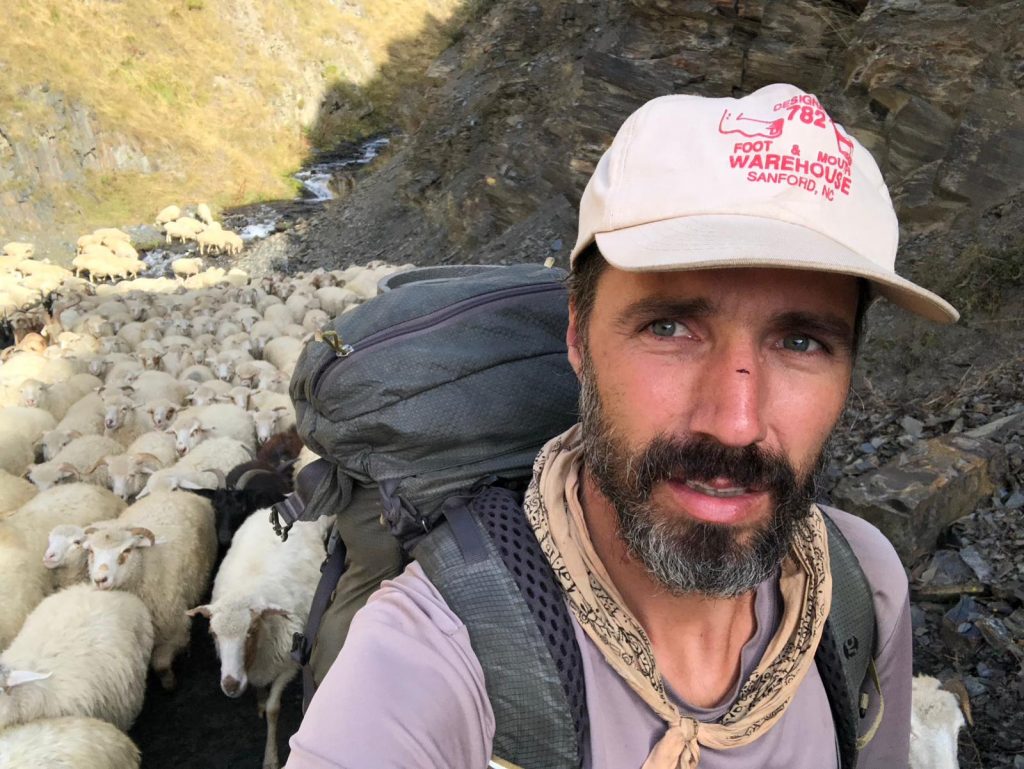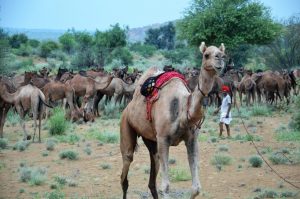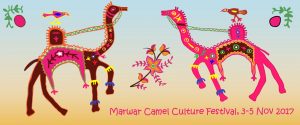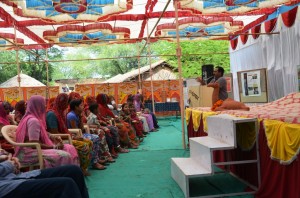 In a festive ceremony held at the LPPS campus in Butibagh on November 6th, our newest publication “The Camels of Kumbhalgarh. A biodiversity treasure” was officially released in the presence of Col. Dr. Umaid Singh and of Dr. N.V. Patil, director of the National Research Centre on Camel. Col. Umaid Singhji conveyed a message of support by H.H. Gaj Singhji of Jodhpur. The event was also attended by MLA Pushpendra Singh, as well as Shri Kamal Kishore, coordinator of the Rainfed Livestock Network, by Dr. Christiane Herweg of LPP, in addition to about 400 camel herders and local women. Many innovative caamel products were on display and local artisans demonstrated their skills in fashioning various products from camel raw materials.
In a festive ceremony held at the LPPS campus in Butibagh on November 6th, our newest publication “The Camels of Kumbhalgarh. A biodiversity treasure” was officially released in the presence of Col. Dr. Umaid Singh and of Dr. N.V. Patil, director of the National Research Centre on Camel. Col. Umaid Singhji conveyed a message of support by H.H. Gaj Singhji of Jodhpur. The event was also attended by MLA Pushpendra Singh, as well as Shri Kamal Kishore, coordinator of the Rainfed Livestock Network, by Dr. Christiane Herweg of LPP, in addition to about 400 camel herders and local women. Many innovative caamel products were on display and local artisans demonstrated their skills in fashioning various products from camel raw materials.
New research by the University of Cambridge suggests that sylvipastoral systems – such as practiced traditionally by the Raika and many other pastoralists – provide the most sustainable avenue for livestock production.
“It is clear that silvopastoral systems increase biodiversity, improve animal welfare and provide good working conditions while enabling a profitable farming business” says Professor Donald Broom who led the study.
See more information at http://www.cam.ac.uk/research/news/sustainable-livestock-production-is-possible
After the notification by the Rajasthan government to convert the Kumbhalgarh Wildlife Sanctuary into a National Park on 2nd February, 2012 , the Raika community and the other 36 communities in the area had submitted an objection through LPPS. In this they insisted that they should be issued their Forest Rights before the National Park is instituted. Applications for Forest Rights are pending, but have not been acted upon. Now some movement seems to have come into the process: The District Collector of Pali has called a meeting on October 25th for pastoralist representatives and the 30 sarpanches (village heads) of the objecting villages in Desuri Tehsil to further discuss the issue.
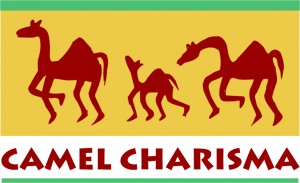 As in past years, LPPS will have a presence at the Pushkar Fair to support the camel breeders that are at the core of its work. It will share a stall with Camel Charisma, a social enterprise that develops and markets innovative camel products to create incomes and livelihoods in Rajasthan’s rural areas. Camel Charisma’s new website will go on-line soon – details will be announced shortly.
As in past years, LPPS will have a presence at the Pushkar Fair to support the camel breeders that are at the core of its work. It will share a stall with Camel Charisma, a social enterprise that develops and markets innovative camel products to create incomes and livelihoods in Rajasthan’s rural areas. Camel Charisma’s new website will go on-line soon – details will be announced shortly.
Together with the Raika camel breeders from the Godwar area, a number of events are planned to raise attention of how the world’s biggest camel fair actually forgets its camels….many of whom are now going for slaughter. So visit us at the Camel Charisma stand at Pushkar to find out more about the true situation of the camel in Rajasthan and how this animal can be saved for the future!
Contact: Hanwant Singh Rathore at 09414818564 or 09660083437 for further information!
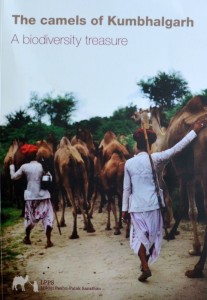 LPPS has compiled a new publication entitled “The Camels of Kumbhalgarh – A biodiversity treasure“. Endorsed by H.H. Maharajah Gaj Singhji of Jodhpur, this small volume makes the case for integration of the few remaining camel herds into the management of the planned Kumbhalgarh National Park – for the sake of biodiversity conservation, livelihoods and as an added attraction for tourists. Besides a description of the age-old camel grazing system, it features a list of the 36 most important camel forage plants, including photographs. The medicinal values of the tress and shrubs are also elaborated upon.
LPPS has compiled a new publication entitled “The Camels of Kumbhalgarh – A biodiversity treasure“. Endorsed by H.H. Maharajah Gaj Singhji of Jodhpur, this small volume makes the case for integration of the few remaining camel herds into the management of the planned Kumbhalgarh National Park – for the sake of biodiversity conservation, livelihoods and as an added attraction for tourists. Besides a description of the age-old camel grazing system, it features a list of the 36 most important camel forage plants, including photographs. The medicinal values of the tress and shrubs are also elaborated upon.
The printed version of “The Camels of Kumbhalgarh” will be released in a special event on 6th November, just prior to the Pushkar Camel Fair.

